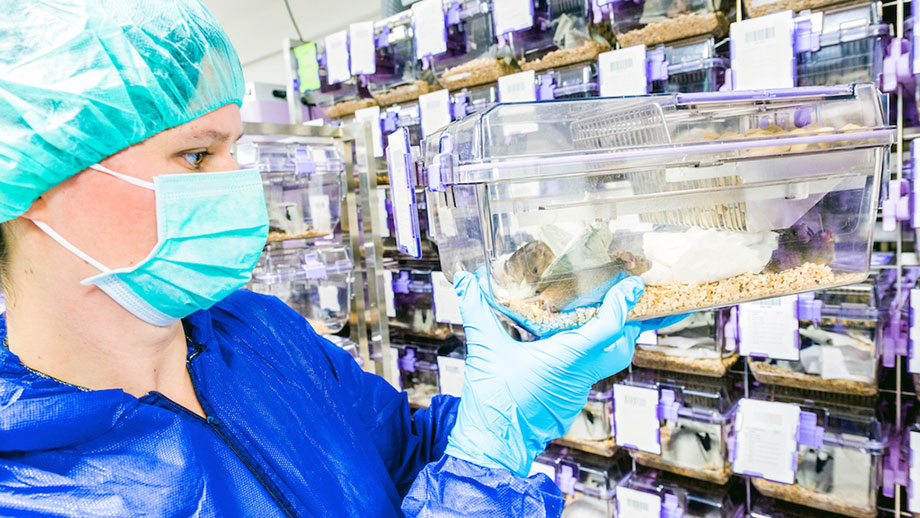3Rs Principle: Replace, Reduce, Refine
Wherever possible, research using animals should be replaced with methods that do not involve animals. The number of animals in a study should be kept as low as possible without reducing statistical significance. And the stress caused to animals should be reduced as far as possible by improving experimental procedures and conditions. Replace, reduce, refine – these are the guiding principles of the 3Rs principle.
The 3Rs principles are based on the 1959 "Principles of Humane Experimental Technique" by William Russell and Rex Burch. The principles are the internationally established guidelines for ethical treatment of animals in research. The 3Rs principle aims to avoid or reduce animal testing and the animals’ suffering.
| Replace | Replace the animal experiment with a procedure that does not involve animals |
| Reduce | Reduce the number of animals to the required minimum |
| Refine | Refine the experimental procedures and conditions to minimize distress and promote animal welfare |
3Rs at UZH
UZH has had a 3R coordinator since April 2018. The role involves promoting 3Rs research and advising and training students, scientists and animal caretakers on relevant topics. The 3R coordinator also represents UZH at the Swiss 3R Competence Center.
Animal Welfare and 3Rs: 3R Coordination at UZH
UZH 3R Award
Video (YouTube): a non-aversive way to handle laboratory animals
Swiss 3R Competence Center (3RCC)
Refine: Less stress, better research
Urs Meyer, professor at the Institute of Veterinary Pharmacology and Toxicology at UZH, and his team have developed a new method of orally administering pharmaceutical substances to mice. The new method benefits both the animals and the researchers. The method will now be rolled out more widely as part of the National Research Programme 79, “Advancing 3R”.
Interview with Urs Meyer on UZH News
Reduce: Breeding fewer animals
Veterinarian Philippe Bugnon and two colleagues are developing new software to ensure that when mice and rats are bred for certain traits, as few animals as possible are produced that cannot be used for research.
Reduce: Breeding fewer animals
Refine: Operating on rodents in the best possible way
Petra Seebeck, a specialist veterinarian in laboratory animal science at UZH, is researching how to optimally perform surgical procedures on mice and rats, thereby reducing the stress on test animals.
Refine: Operating on rodents in the best possible way
A new life after leaving the lab
UZH has rehomed 778 laboratory animals in private households since 2018. Hundreds of rats and mice, as well as several dogs, rabbits and a horse used in research projects have thus been given a new life. For the rehoming project, UZH works hand in hand with the Swiss animal protection society, the SAP.
A new life after leaving the lab
